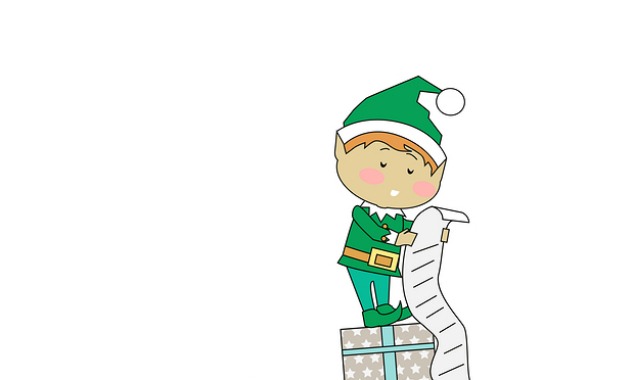Oxfam have listed a naughty and nice list of retailers who are/aren’t transparent.
Who has been naughty?…
The Just Group, including Just Jeans, Peter Alexander, Dotti
The Just Group does not publish their factory list on their website. “This means there’s no way of easily checking the conditions in factories that are making your favourite PJ’s from Peter Alexander, or jeans from Just Jeans,” said Oxfam.
“The group also has not joined the Bangladesh Fire & Building Safety Accord, opting instead for the weaker Alliance on Worker Safety – so it’s a definite ‘naughty’ from Oxfam.”
Best & Less
Best & Less has made some progress according to Oxfam, by publishing a Code of Conduct and set of policies for their suppliers, aimed at protecting worker’s rights.
“The problem is, without also publishing the places their clothes are sewn, there’s just no way to easily check if any of these good commitments are really being put into practice,” said the not-for-profit.
Topshop
“We’re inviting Topshop to our party this year by asking them to reveal exactly where they make their clothes, so we can see whether that outfit comes with more than what Australian consumers might have bargained for,” said Oxfam.
Topshop does have some “top ethical sourcing polices, codes and guidebooks” – as well as “a lot of good information” about auditing on their website.
Uniqlo
“This new brand in the Australian market has made some big waves. Their parent company Fast Retailing has some strong policies and codes, and some limited information about where clothes are sourced. It’s time for Uniqlo to step up and reveal exactly where they make their clothes.”
Inditex, including Zara
Zara being on the naughty list was a tough decision according to Oxfam as they have taken a “big step” of publishing their list of dyeing mills.
“Oxfam’s elves made the tough decision of keeping them on the Naughty List this year, because we think Inditex has to do better. We want to know where their clothes are sewn together as well – and are asking Inditex to publish their full list.”
Factory X, including Gorman, Dangerfield & Alannah Hill
“We love edgy fashion, but it’s not cool to keep your factories under wraps. Factory X needs to step up on transparency.”
ASOS
ASOS have stayed on the Naughty List for 2016 as they have not published their factory list. However, Oxfam have congratulated them for their clear policies and codes.
Who has been nice?..
Wesfarmers, including Kmart, Target and Coles
The big names in the Wesfarmers group, including Kmart, Target and Coles sell clothes all around Australia and source from all around the world.
“These brands are leaders when it comes to transparency, having been first in Australia among those to publish their factory lists. Each of these companies also has clear sourcing policies and codes of conduct,” said Oxfam.
“When buying that T-shirt or dress from these companies, you can be assured they are not hiding the factories where their clothes are made.”
H&M
H&M has long published their factory list. They’ve also made some moves towards paying better wages for workers across their supply chain.
Recent reports have revealed accusations of serious issues in the H&M supply chain, Oxfam said they do not take these lightly.
“The level of transparency by H&M, however, does allow problems like these to be uncovered much more easily – and then acted upon. So in this list we welcome their transparency as a positive step in the right direction for better conditions for workers.”
GAP
“Great on transparency, not as good on listening to worker’s organisations: GAP has made it to the Nice List this year for recently publishing their full factory list. A big achievement.”
Specialty Fashion Group, including Katies, Rivers, Millers/Autograph, Crossroads and City Chic
Speciality Fashion Group is a 2016 success story according to Oxfam as they made the bold decision to publish their factory list in April this year. At the time, Group CEO Gary Perlstein told Oxfam he was proud to make their suppliers and sourcing policies visible, in order to help customers to make more informed purchasing decisions.
Big W, owned by Woolworths
“The company is committed to regularly updating the list and also publishes lots of useful information on their souring policies and the way in which they audit their factories.”
Cotton On Group, including Cotton On, Cotton On Kids, Cotton On Body, Rubi, Typo, Supre and Factorie
“They publish strong codes of conduct, sourcing policies and some auditing details, as well as being a party to positive initiatives like the Bangladesh Fire & Building Safety Accord.”
Pacific Brands: Rio, Bonds, Explorer, Sheridan, Berlei, Holeproof & Jockey
“Pacific Brands can also be applauded for being a part of the Ethical Trading Initiative and having strong policies and codes.”
Jeanswest
Earlier this month Jeanswest published 80 per cent of their factory list.
“We look forward to celebrating when that final 20 per cent is brought out of the dark. Jeanswest also makes some clothes in Australia, and they get an extra candy cane from Oxfam’s elves for ensuring their Aussie fashion line is accredited with Ethical Clothing Australia.”
Forever New
“The company has just gone from publishing only 40 per cent of their factory list to publishing 70 per cent.
“There’s still a long way to go, but this is one big improvement just in time to jump across from Naughty to Nice this Christmas. They’ve also got a strong policy and code of conduct for all to see and are members of the Bangladesh Accord.”
The PAS Group, including Designworks, Review
“Everyone loves a good dress and these brands makes some lovely ones – and now we’re happy to say you can feel a little better about buying them for your next big event! In an exciting move, the PAS Group has just published 70 per cent of their international supply chain.”












